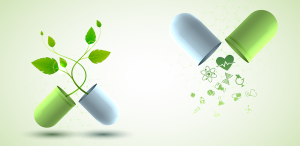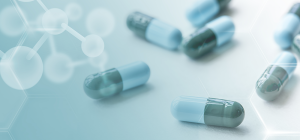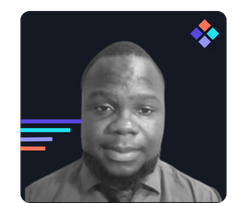As the NFT industry continues to evolve, developers are discovering more and more revolutionary applications for this highly versatile technology. As such, NFTs have use cases in electoral processes (voting), real estate, entertainment, supply chain management, and the healthcare industry, to name a few.
The healthcare industry is an essential industry that manages, promotes and ensures a healthy and wholesome lifestyle for one and all. The sector has a responsibility to provide prompt healthcare services, ranging from diagnosis, medical research, surgery, therapy, treatment and prevention of disease or illness, among others. The incorporation of NFT into healthcare can broaden the delivery of healthcare services to patients and redefine the global healthcare sector.
How NFTs can reshape the healthcare industry
1. Promote the supply chain of Blood Banks
Blood banks were created to store and preserve blood samples to be used for blood transfusions for patients in need, especially during emergencies. Blood donation has been essential for blood transfusion and other biopharmaceutical drugs. So how can NFTs help improve the situation?
Promoters/stakeholders of blood donation services can establish a digital blood bank on blockchain networks. With that, NFTs will be issued to donors and linked to their donated blood so they can be publicly tracked from blood banks to hospitals or wherever they are needed. This initiative can also monitor available blood types and their proximity to where they are required.
For example, since there may be various volumes of different blood types in blood banks, the location of each blood type and other useful information can be used to mark its rarity. Therefore, blood in Arizona will not be reserved for a patient in New Jersey to avoid delays, which can be devastating. In addition, donation types should also be part of the characteristics attributed to each NFT, for example, whole blood, plasma, platelets, or a strong red donation, to allow medical staff to decide what is best for patients.

2. Authentication of Pharmaceutical Products
Much of the treatment administered in health care is highly dependent on pharmaceuticals such as drugs, injections, inhalers, drops, etc. However, unscrupulous elements are manufacturing counterfeit products to imitate the originals at lower prices, which is detrimental to human health. To address these issues, pharmaceutical companies can adopt the concept of Phygitals NFTs for their products to claim and verify their authenticity. This will also provide information on the scale of production of each medical product.
With Phygital NFT for medical products, each NFT will represent a physical product; once the product has been sold, the NFT will automatically burn to indicate that it is no longer in circulation. This will also help reduce the circulation of expired products; the expiration date of the products can be synchronized with the recording date of your NFTs. Therefore, the NFTs of the unsold products will be burned once they reach the expiration date.
3. Medical Record Tokenization
Assuming a patient had plastic surgery and needed a modified cream to recover, as advised by the cosmetologist. Currently, medical records are sent to a pharmaceutical company and the patient cannot be sure that the data will not be used for other purposes. Here, the patient can coin their medical data as NFT and be able to control who has it and how it is used.
Medical data tokenization can also drive clinical research and trials where patients can list their medical NFTs on marketplaces. Interested corporations or companies may contact patients to obtain their medical data for research or use to develop new products.
4. As a charity for Global Medical Aids
NFT projects can be created to crowdfund medical outreach in impoverished countries, war zones, and areas prone to natural disasters like earthquakes, landslides, and floods. For example, a collection of NFTs can be minted and listed on the markets, using their proceeds for medical aid. This can be effective in thorny places of war or the location of a recent natural disaster.
5. As a Medical and Awareness Campaign
Knowledge is crucial in the provision of health care, as it prevents people from preventable diseases and endemic viruses. NFTs can be used for campaigns and awareness against exposure to viruses such as HIV/AIDS, COVID-19, Ebola virus, HPV (Human Papillomavirus), Monkeypox, Chicken Pox, Influenza, herpes etc This can be achieved by creating pithy animations about these viruses and coining them as free NFTs.


6. Incentives to get vaccinated
As the magnitude of NFT enthusiasts continues to grow, it can be a valuable tool in encouraging the public to get vaccinated. This can be helpful, especially after the Covid-19 virus and its vaccines. These NFTs can be issued to people based on the type of vaccine they received, their current dose, booster status, etc. For example, anyone who took AstraZeneca will receive a corresponding NFT; if they took their second dose, they would receive another NFT. If they take a booster, they can also receive a serum to increase their collected NFTs. These NFTs can be supporting proof of vaccination, as is required for international travel.
Conclusion
NFTs continue to explore perpetual use cases in various sectors, including healthcare delivery. The incorporation of NFT into healthcare will revitalize and redefine global healthcare through the digital space, a paradise for the young tech-savvy.
Well-known brands showcasing the functionality of NFTs in healthcare include:
They want more? Connect with NFT Plazas
Join the weekly newsletter
join our discord
Follow us on Twitter
Like us on facebook
Follow us on Instagram
*All investment/financial opinions expressed by NFT Plazas come from the personal research and experience of our site moderators and are intended for educational purposes only. People are required to fully research any product before making any type of investment.

Technical writer, enthusiast of all things blockchain and the decentralized world.
!function(f,b,e,v,n,t,s){if(f.fbq)return;n=f.fbq=function(){n.callMethod?n.callMethod.apply(n,arguments):n.queue.push(arguments)};if(!f._fbq)f._fbq=n;n.push=n;n.loaded=!0;n.version=’2.0′;n.queue=[];t=b.createElement(e);t.async=!0;t.src=v;s=b.getElementsByTagName(e)[0];s.parentNode.insertBefore(t,s)}(window,document,’script’,’https://connect.facebook.net/en_US/fbevents.js’);






